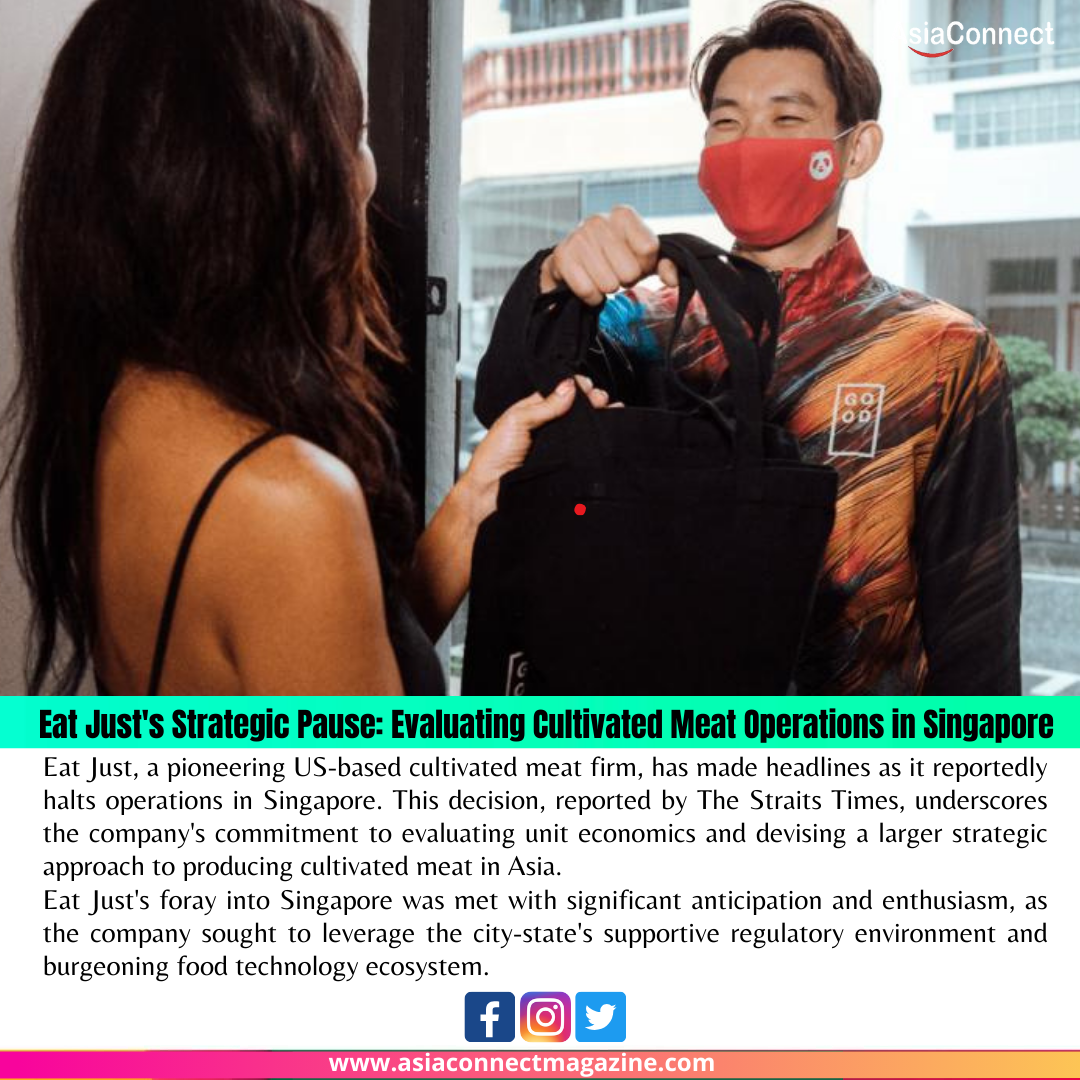Eat Just, a pioneering US-based cultivated meat firm, has made headlines as it reportedly halts operations in Singapore. This decision, reported by The Straits Times, underscores the company’s commitment to evaluating unit economics and devising a larger strategic approach to producing cultivated meat in Asia.
Eat Just’s foray into Singapore was met with significant anticipation and enthusiasm, as the company sought to leverage the city-state’s supportive regulatory environment and burgeoning food technology ecosystem. The launch of its cultivated chicken product, cultivated from animal cells in a laboratory setting, marked a significant milestone in the development of alternative protein sources and the quest for sustainable food production.
However, the decision to halt operations in Singapore raises questions about the challenges and complexities inherent in the cultivated meat industry. While cultivated meat holds immense promise in terms of addressing sustainability and ethical concerns associated with traditional animal agriculture, it also faces numerous hurdles in terms of scalability, cost-effectiveness, and consumer acceptance.
One of the key factors driving Eat Just’s decision to pause operations in Singapore is the need to evaluate unit economics. Cultivated meat production involves sophisticated biotechnological processes that require significant investment in research, development, and infrastructure. While the costs of production have been gradually decreasing over time, they still remain relatively high compared to conventional meat production methods. Eat Just’s decision to reassess its unit economics reflects the company’s commitment to ensuring long-term viability and sustainability in the cultivated meat industry.
Additionally, Eat Just’s strategic pause is indicative of a broader shift towards adopting a more holistic and strategic approach to producing cultivated meat in Asia. The company recognizes the importance of aligning its operations with local market dynamics, consumer preferences, and regulatory frameworks. By taking the time to evaluate its strategic approach, Eat Just aims to position itself for long-term success and leadership in the rapidly evolving cultivated meat industry.
It’s important to note that Eat Just’s decision to halt operations in Singapore does not signal a retreat from the cultivated meat market. On the contrary, it reflects a proactive effort to address challenges and capitalize on opportunities in the industry. Eat Just remains committed to advancing the science and technology of cultivated meat production, with a focus on sustainability, innovation, and consumer satisfaction.
The cultivated meat industry holds immense potential to revolutionize the way we produce and consume protein, offering a more sustainable and ethical alternative to conventional animal agriculture. However, realizing this potential requires overcoming numerous technological, economic, and regulatory hurdles. Eat Just’s decision to pause operations in Singapore underscores the complexities and challenges inherent in the cultivated meat industry, while also signaling the company’s commitment to navigating these challenges in pursuit of a more sustainable and ethical food future.
In conclusion, Eat Just’s decision to halt operations in Singapore represents a strategic pause aimed at evaluating unit economics and refining its approach to producing cultivated meat in Asia. While this decision may present short-term challenges, it reflects the company’s long-term commitment to advancing the science and technology of cultivated meat production and realizing the potential of alternative protein sources in addressing global food sustainability challenges.





